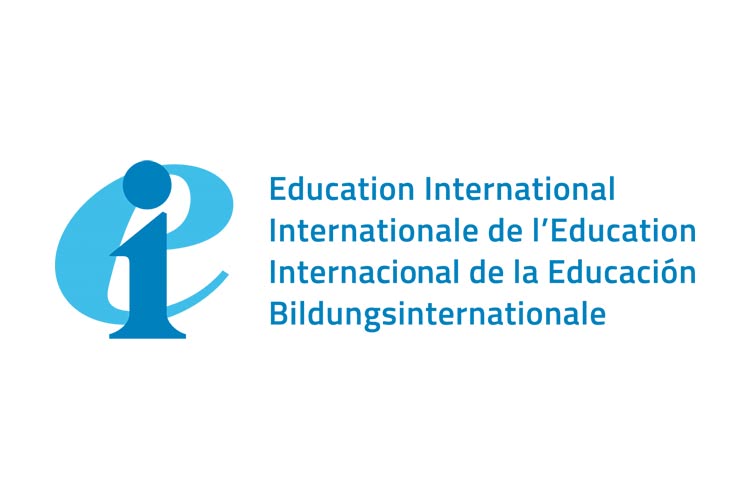Further and Higher Education: Advancing conditions for staff to improve quality education

The first day of the 11th Education International’s Further and Higher Education and Research Conference has provided member organisations with a forum for exchanging information and strategies across regions for the advancement of quality terms and conditions of employment for teachers, academics and researchers, and addressed technical and vocational education and training issues.
Union leaders and activists representing teachers, academics and researchers in institutes, colleges, and universities are meeting peers from across the globe to discuss key issues facing the profession and build networks of contact and support at the Education International (EI) 11th International Further and Higher Education and Research Conference (IHFERC) in Taipei, Taiwan from 12-14 November 2018.
EI General Secretary: education unions’ relentless efforts to advance the interests of higher and further education teachers and researchers
Welcoming participants at the conference entitled ‘Advancing Conditions for Staff-Improving Quality Education’, EI General Secretary David Edwards highlighted that since the last conference held in Accra, Ghana in 2016, EI has stepped up its advocacy to advance the interests of higher and further education teachers and researchers, Last year, EI commemorated the 20th anniversary of the 1997 UNESCO Recommendation Concerning the Status of Higher Education Teaching Personnel at a special event at the Sorbonne in Paris launching research about the impact and implementation of the 1997 recommendation.
In September, at the International Labour Organisation (ILO), an EI delegation pressed for the development of global standards to promote decent work and combat the use of precarious fixed-term employment at the ILO Global Dialogue Forum on Terms and Conditions of Employment in Tertiary Education.
Edwards also mentioned that EI, after consultation of its affiliates in the higher education and research sector, submitted in the first quarter of 2018 its reply to the Consultation Survey on the Preliminary Draft on the Global Convention on the Recognition of Higher Education Qualifications. EI stressed concern with the way evaluation of quality is presented in the preliminary draft. It was too heavily focused on learning outcomes, whereas quality depends on quality inputs and processes, including interaction between students, teachers and the institutional learning environment, and cannot be simplified into a numeric score.
Concerning sustainable development goals (SDGs) and tertiary education, Edwards said that EI has continued to call for the abolition of tuition fees and the adoption of measures to significantly reduce the indirect costs of tertiary education. A short survey was distributed on the first day and the responses will feed into a research project aiming to identify educators’ understanding and perceptions of SDGs progress. This research will be presented on the occasion of the 2019 UN General Assembly, when governments from around the world will meet to monitor progress of the educational targets of SDGs.
Violations of academic freedom are on the rise and EI continues to engage in international solidarity actions across the globe including in Turkey, Hungary, Brazil and Sudan. Edwards underlined that “international solidarity has become more important than ever as academic freedom, scientific evidence and even the foundations of democracy are under threat in an increasing number of countries.”
Spotlight on vocational training
Three country case studies on technical and vocational education and training (TVET) was launched at the first day of the conference, highlighting one of EI’s key policy priorities. The country case studies on England, Australia and Taiwan are part of upcoming report on how TVET can foster social justice. That report will be published in 2019 and also include Argentina, Ethiopia, Germany and Ivory Coast. The study is conducted by Leesa Wheelahan, who presented it at IFHERC, Gavin Moodie, Leping Mou, Eric Lavigne and Ashley Rostamian from the Ontario Institute for Studies in Education at the University of Toronto.
Commenting on the release, David Edwards noted that “the need for TVET is growing exponentially. These initial reports demonstrate that this must be mirrored by adequate funding, since it is an area of education that will be determinant in the near future”. He recalled that many international organisations such as UNESCO and the ILO are putting strong emphasis on the acquisition of new sets of skills to adapt to new types of labour, and regretted that in many countries there has been a fracturing of the TVET infrastructure, “triggered among other things by the privatisation and commercialisation of TVET , and a failure of the State to take responsibility and ensuring the access to high-quality TVET.” he said.
Leesa Wheelahan’s blogpost, ‘TVET, capabilities and social justice’, related to IFHERC and published on the Words of Education website, is available here.
For further information about the 11th IFHERC conference, please visit the conference website.












Responses